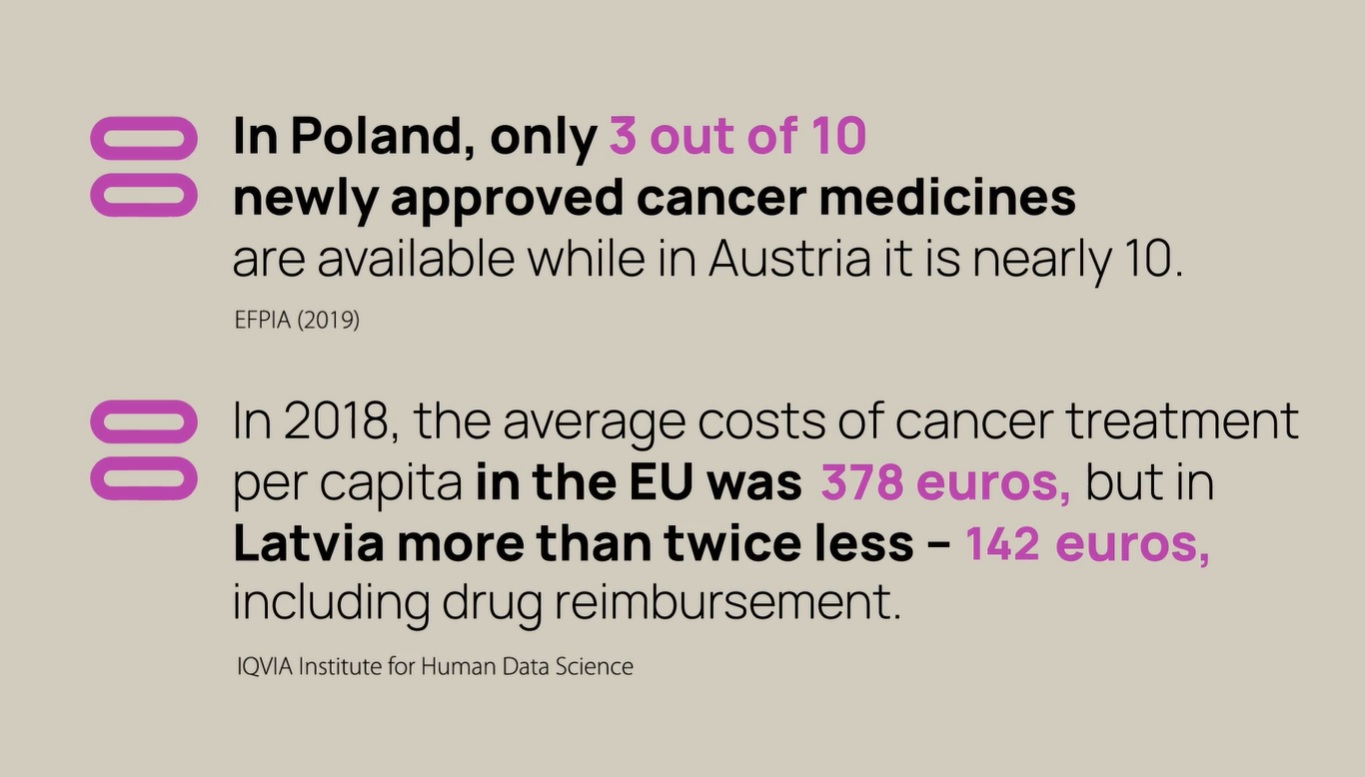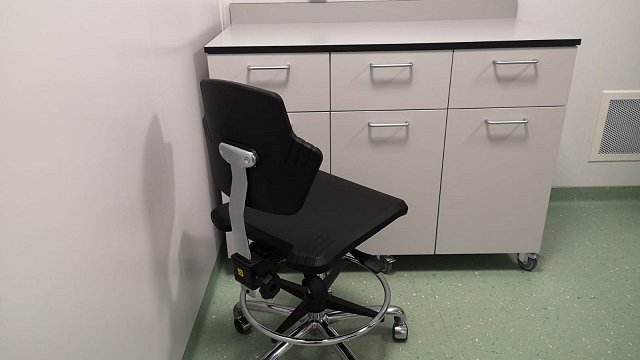On 18 and 19 March, the European Congress of Oncology Patient Organizations “On Equality in Beating Cancer” will take place with the aim "to prevent inequalities in cancer diagnosis, treatment, access to innovative medicines, and other areas."
The event is organized by the Latvian Association of Oncology Patient Organizations "Onkoalianse" in cooperation with the Special Committee on Beating Cancer (BECA) of the European Parliament. The event is co-organized by influential patient organizations of Central and Eastern Europe (CEE) countries – Romania, Greece, Estonia, Lithuania, the Czech Republic, Poland, and elsewhere.
Congress participants will include advocacy leaders, teachers, doctors, politicians, representatives of national governments and the European Parliament (EP), and will identify the causes of inequality in cancer care and request the CEE region health policy officials and decision-makers to address them so that cancer patients who are living in this part of the European Union (EU) can receive the same modern, innovative cancer care as in the EU's welfare states.
Congress speakers will include Stella Kyriakides, European Commissioner for Health and Food Safety, John Ryan, Director of the EC Public Health directorate, Bettina Ryll, Founder of the Melanoma Patient Network Europe, Menia Koukougianni, Co-founder and manager of NGO “KARKINAKI”, Greece, and Ministers of Health of the Baltic States.
The European Parliament has prioritized oncology and set a target of more than 70% of oncology patients surviving in the EU by 2030. Unfortunately, there is still a long way to go until this target is reached in the CEE region. For example, only 46% of CEE countries have cervical, breast and colorectal cancer screening programs that ensure early detection of cancer. Five-year relative survival rates in CEE countries are also significantly lower than in the EU.
Olga Valciņa, Member of the Board of Onkoalianse said: “Medical advances in cancer today increasingly allow it to be called a chronic disease with a long-term survival, which is great and promising news. It’s not acceptable, that in the East-Central Europe countries people are afraid to get sick and die from 'the wrong cancer'. Scared because of the lack of timely diagnosis, lack of knowledgeable specialists and state-reimbursed innovative drugs, while in Western Europe this type of cancer is successfully treated, and patients can live for many years”.
Ivars Ījabs Development/For!), Latvian Member of the European Parliament, Chairman of the European Parliament's special committee on beating cancer, said the congress is an important step forward in joining forces of patient organizations to influence decisions made by EU institutions and Member States to reduce inequality in cancer care.
"It is very important that inequality in cancer care would be precisely identified and accounted for at the EU level, but it is the responsibility of each Member State to tackle such inequality. It will be the homework of each country to make cancer care more effective, fairer and more accessible to every cancer patient,” said Ījabs.
More information is available at: https://cancerequality.eu/lv/





























